Farming is understood to have barely featured in the outline for government agreed last week between Fianna Fáil and Fine Gael.
The 12-page document is understood to merely be an outline of the broad strategic objectives agreed between the two traditional rivals.
It will be made public early this week, but the Irish Farmers Journal understands farming hardly had a mention in the draft agreed between the parties.

Taoiseach Leo Varadkar, Tánaiste Simon Coveney and Minister for Agriculture Michael Creed campaigning in a mart pre-coronavirus.. / Donal O' Leary
The lack of focus on agriculture may cause concern for the sector, but the purpose of the document is in part to form the basis for negotiations with other parties to form a majority. That will not prove easy.
The key numbers
Fianna Fáil’s 38 seats combined with Fine Gael’s 35 fall well short of a majority of the Dáil’s 160 seats.
With Sean O'Fearghail (FF) retaining the Ceann Comhairle position, they have 72 seats - at least eight short. Both parties are ruling out Sinn Féin as a coalition partner, so its 37 TDs seem bound for opposition.
Greens on the menu?
The next largest bloc is the Green Party, with a dozen TDs.
The party has been trending towards opposition, and would need convincing to join the two so-called establishment parties.
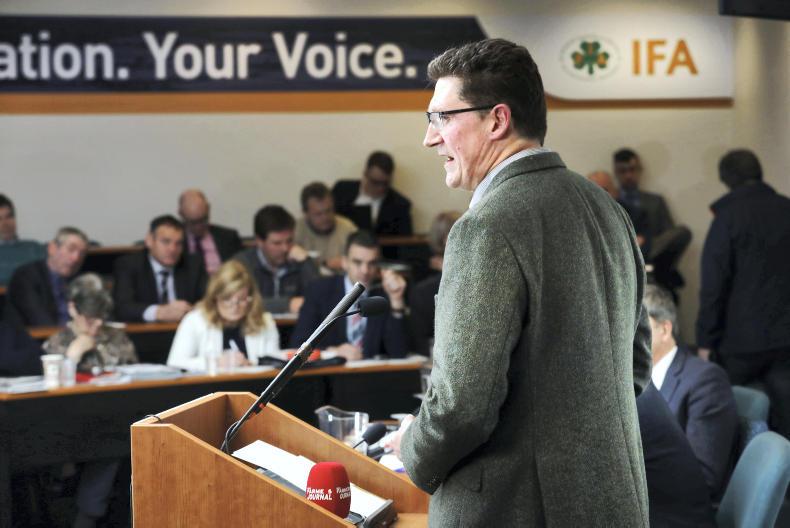
Green Party leader Eamon Ryan. \ Finbarr O'Rourke
Farmers might fear that agriculture will be a bartering tool in this courtship game, with the Greens opposed to further dairy expansion, the nitrates derogation, and live exports of animals, and favouring organic farming and rewilding of rural Ireland.
Potential partners
The leading option for a coalition partner is one or more of the three independent groupings. Of these, two are mostly rural and pro-farming. The nine-strong Regional Independents, led by one-time Fine Gael agriculture spokesperson Denis Naughton, has the numbers to reach the magic 81 (barely).
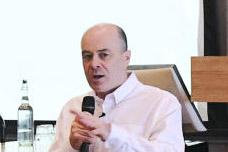
Denis Naugthen.
With the likes of Sean Canney (ex-FF), Michael Lowry (ex-FG) , Peadar Toibin (ex-SF), and Noel Grealish (ex-FF and PD) in this grouping, it covers a wide political spectrum.
Will the special interests of Cathal Berry, the Kildare TD focused on health and Defence Force family pay and conditions, be easy to accommodate? Matt Shanahan, the new Waterford TD, also ran on health service issues.
Add in newcomer Verona Murphy, the former road hauliers president, and Louth former FG TD Peter Fitzpatrick, and the scale of the challenge in agreeing a policy platform becomes apparent.
The one consolation for farmers is that there should be a consensus between these nine on the importance of the sector.
The same is true of the six-strong Rural Independents.

Independent TD for Kerry Michael Healy-Rae.
With the Healy-Raes, Michael Collins and Mattie McGrath to the fore, they will be vocal advocates of farming, with all having supported the factory protests last summer, and encouraging of the new farmer organisations that emerged through 2019.

Mattie McGrath.
Carol Nolan, the Laois-Offaly former Sinn Féin TD, and newcomer Richard O’Donoghue from Limerick county are the other members.
The Rural Independents on their own won’t create a majority with Fine Gael and Fianna Fáil.
Attention then turns to the Independent group. The six TDs here can be split into two separate factions.
Michael Fitzmaurice was probably the most high-profile advocate for farming, particularly smaller farmers and farmers in the western half of the country, in the last Dáil.
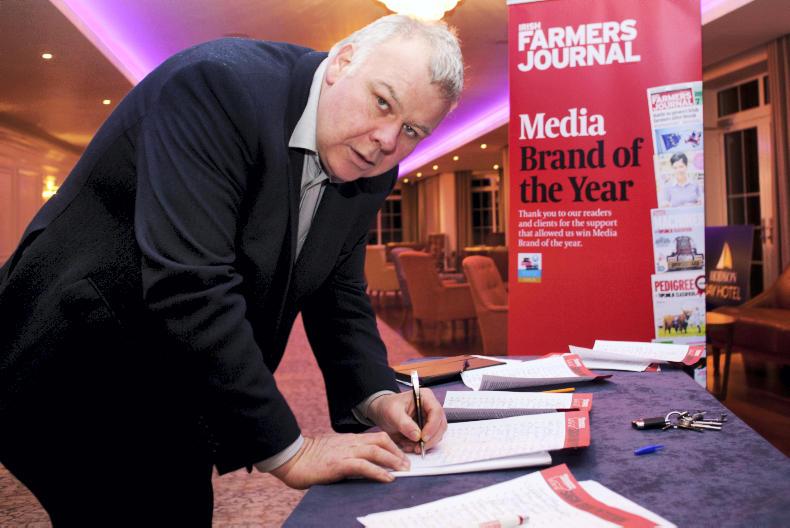
Michael Fitzmaurice. / David Ruffles
Michael McNamara and Marian Harkin are also rural-based, in Clare and Sligo respectively. Thomas Pringle, the Donegal left TD, was a member of the Oireachtas agriculture committee in the last Dáil, and would share views with Fitzmaurice and also with MEP Luke Ming Flanagan.
Joan Collins and Catherine Collins, who, with Pringle, form the Independents 4 Change, are less concerned with rural issues.
Other possibilities
The remaining parties all say they have no interest in joining a FF-FG government.
These include the Labour Party, the Social Democrats, and Solidarity/People before Profit, all with six seats each.
With Alan Kelly newly installed as Labour Party leader, that may change, but the smart money is on either the Greens or an assortment of Independents.
Could such a government last?
Few people predicted that the confidence and supply arrangement between Fianna Fáil and Fine Gael would last almost four years.
While Brexit bound that arrangement together, the coronavirus and its long-term implications for both society and the economy mean that strong and stable government is essential.
Perhaps the most we can reasonably expect is a government that can bring us through the next 18 months, when an election might be both appropriate and possible.
It will be neither for the next few months.
Read more
Share your farming pictures during the COVID-19 lockdown
In pictures: grass cattle in demand at Dowra
How farmers can get through the COVID-19 crisis
Farming is understood to have barely featured in the outline for government agreed last week between Fianna Fáil and Fine Gael.
The 12-page document is understood to merely be an outline of the broad strategic objectives agreed between the two traditional rivals.
It will be made public early this week, but the Irish Farmers Journal understands farming hardly had a mention in the draft agreed between the parties.

Taoiseach Leo Varadkar, Tánaiste Simon Coveney and Minister for Agriculture Michael Creed campaigning in a mart pre-coronavirus.. / Donal O' Leary
The lack of focus on agriculture may cause concern for the sector, but the purpose of the document is in part to form the basis for negotiations with other parties to form a majority. That will not prove easy.
The key numbers
Fianna Fáil’s 38 seats combined with Fine Gael’s 35 fall well short of a majority of the Dáil’s 160 seats.
With Sean O'Fearghail (FF) retaining the Ceann Comhairle position, they have 72 seats - at least eight short. Both parties are ruling out Sinn Féin as a coalition partner, so its 37 TDs seem bound for opposition.
Greens on the menu?
The next largest bloc is the Green Party, with a dozen TDs.
The party has been trending towards opposition, and would need convincing to join the two so-called establishment parties.

Green Party leader Eamon Ryan. \ Finbarr O'Rourke
Farmers might fear that agriculture will be a bartering tool in this courtship game, with the Greens opposed to further dairy expansion, the nitrates derogation, and live exports of animals, and favouring organic farming and rewilding of rural Ireland.
Potential partners
The leading option for a coalition partner is one or more of the three independent groupings. Of these, two are mostly rural and pro-farming. The nine-strong Regional Independents, led by one-time Fine Gael agriculture spokesperson Denis Naughton, has the numbers to reach the magic 81 (barely).

Denis Naugthen.
With the likes of Sean Canney (ex-FF), Michael Lowry (ex-FG) , Peadar Toibin (ex-SF), and Noel Grealish (ex-FF and PD) in this grouping, it covers a wide political spectrum.
Will the special interests of Cathal Berry, the Kildare TD focused on health and Defence Force family pay and conditions, be easy to accommodate? Matt Shanahan, the new Waterford TD, also ran on health service issues.
Add in newcomer Verona Murphy, the former road hauliers president, and Louth former FG TD Peter Fitzpatrick, and the scale of the challenge in agreeing a policy platform becomes apparent.
The one consolation for farmers is that there should be a consensus between these nine on the importance of the sector.
The same is true of the six-strong Rural Independents.

Independent TD for Kerry Michael Healy-Rae.
With the Healy-Raes, Michael Collins and Mattie McGrath to the fore, they will be vocal advocates of farming, with all having supported the factory protests last summer, and encouraging of the new farmer organisations that emerged through 2019.

Mattie McGrath.
Carol Nolan, the Laois-Offaly former Sinn Féin TD, and newcomer Richard O’Donoghue from Limerick county are the other members.
The Rural Independents on their own won’t create a majority with Fine Gael and Fianna Fáil.
Attention then turns to the Independent group. The six TDs here can be split into two separate factions.
Michael Fitzmaurice was probably the most high-profile advocate for farming, particularly smaller farmers and farmers in the western half of the country, in the last Dáil.

Michael Fitzmaurice. / David Ruffles
Michael McNamara and Marian Harkin are also rural-based, in Clare and Sligo respectively. Thomas Pringle, the Donegal left TD, was a member of the Oireachtas agriculture committee in the last Dáil, and would share views with Fitzmaurice and also with MEP Luke Ming Flanagan.
Joan Collins and Catherine Collins, who, with Pringle, form the Independents 4 Change, are less concerned with rural issues.
Other possibilities
The remaining parties all say they have no interest in joining a FF-FG government.
These include the Labour Party, the Social Democrats, and Solidarity/People before Profit, all with six seats each.
With Alan Kelly newly installed as Labour Party leader, that may change, but the smart money is on either the Greens or an assortment of Independents.
Could such a government last?
Few people predicted that the confidence and supply arrangement between Fianna Fáil and Fine Gael would last almost four years.
While Brexit bound that arrangement together, the coronavirus and its long-term implications for both society and the economy mean that strong and stable government is essential.
Perhaps the most we can reasonably expect is a government that can bring us through the next 18 months, when an election might be both appropriate and possible.
It will be neither for the next few months.
Read more
Share your farming pictures during the COVID-19 lockdown
In pictures: grass cattle in demand at Dowra
How farmers can get through the COVID-19 crisis










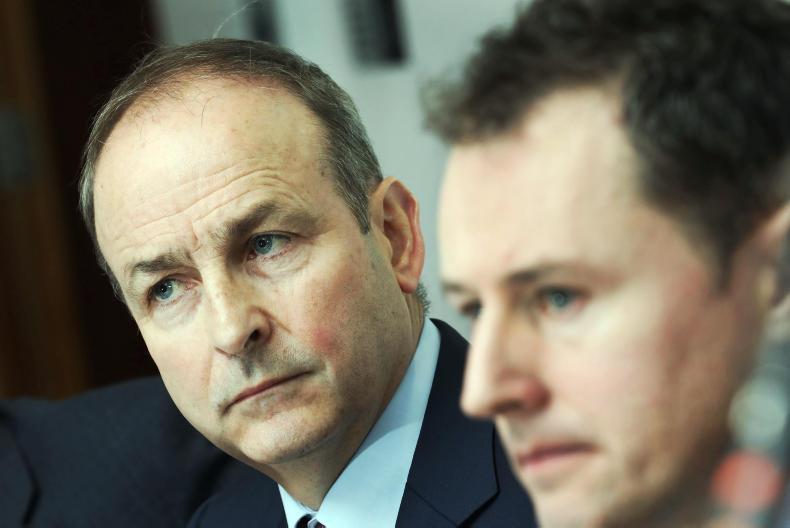
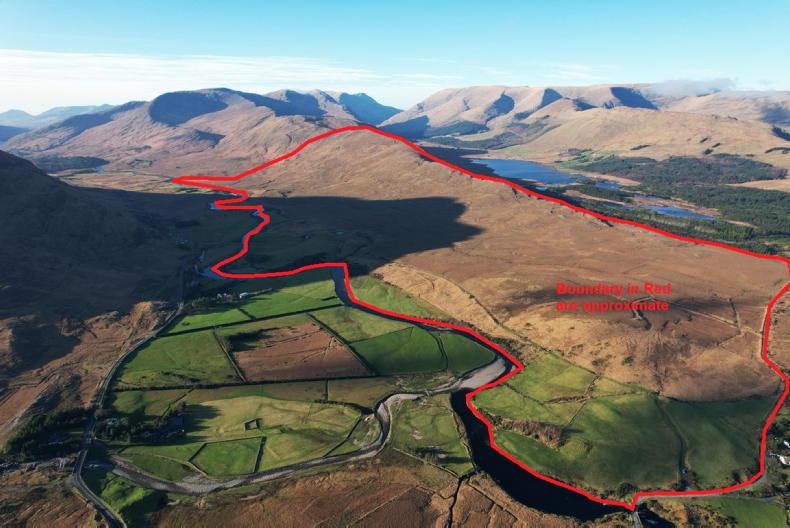

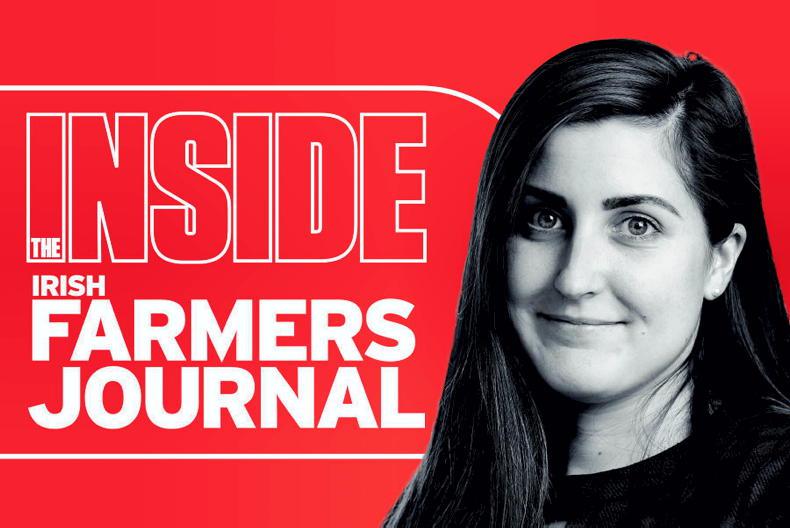
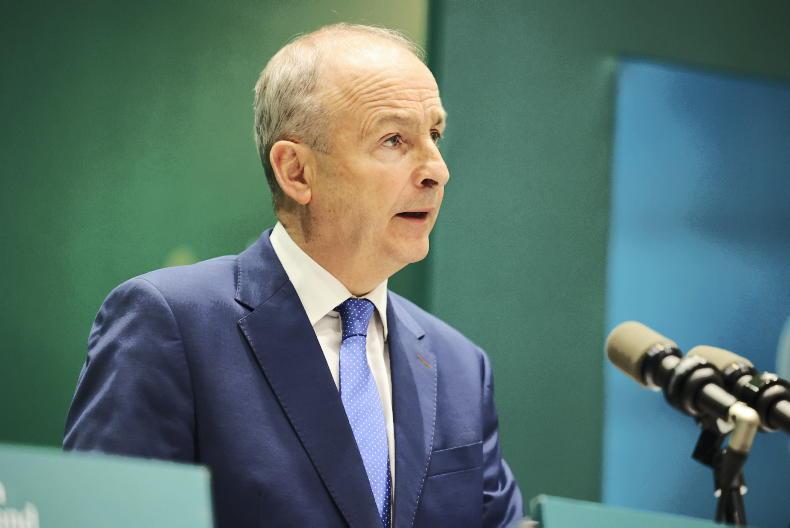
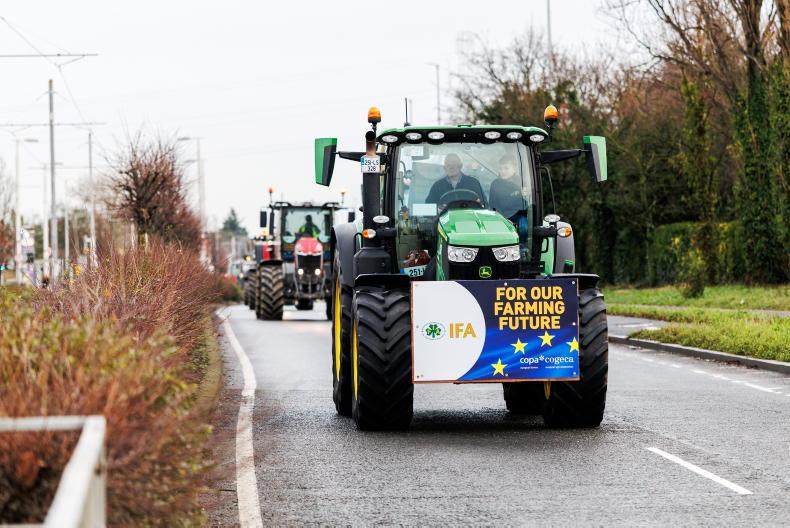
SHARING OPTIONS